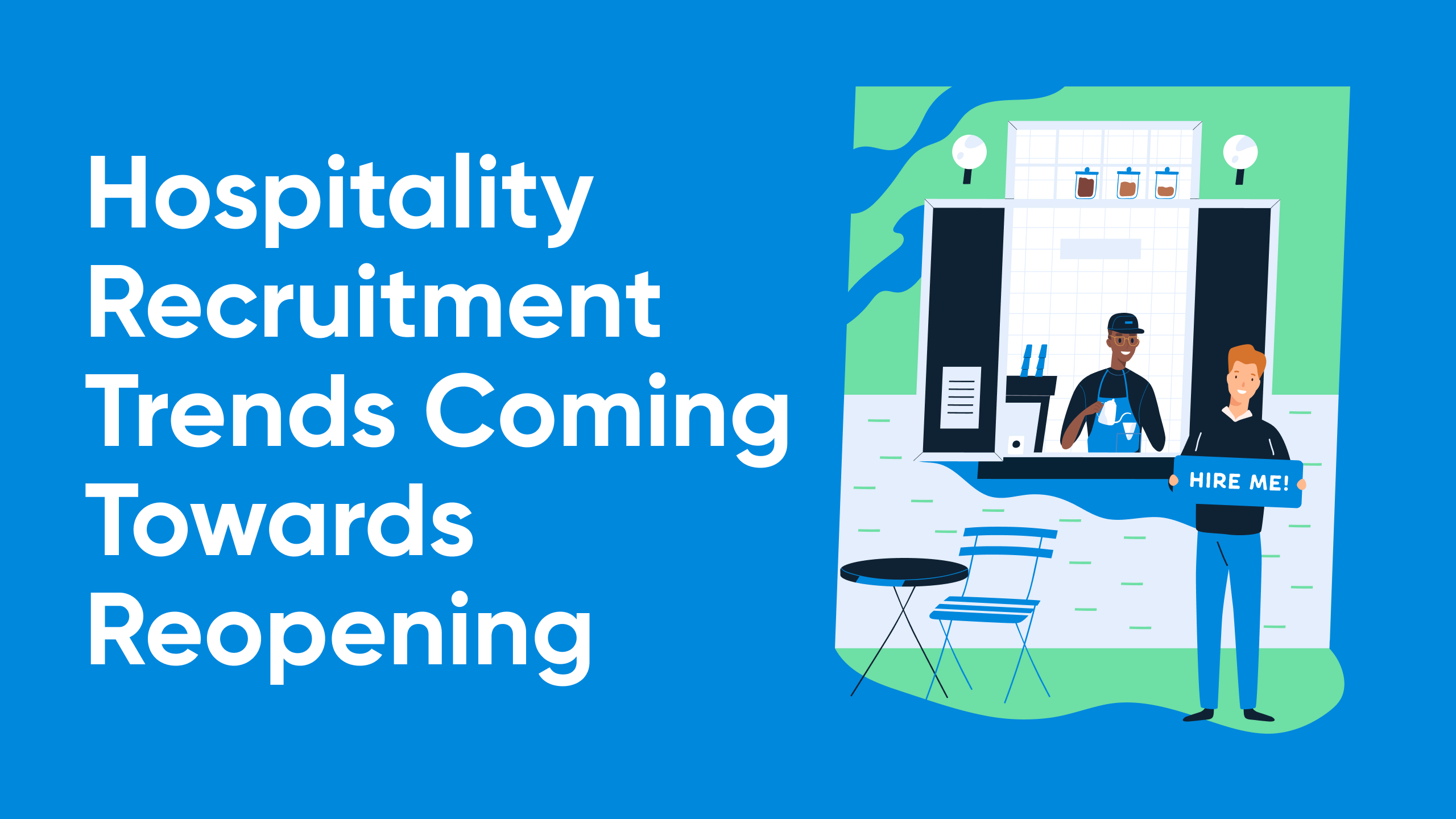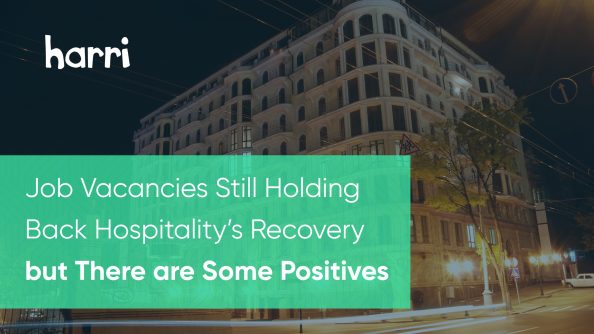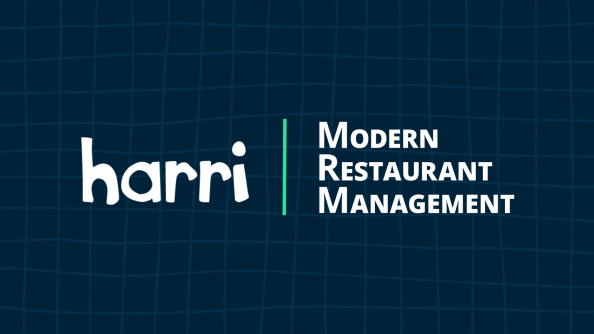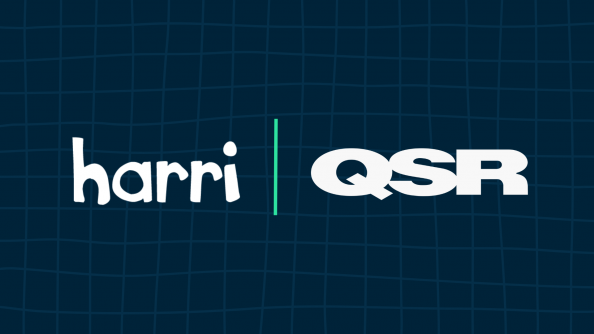Hospitality Recruitment Trends

- By Harri Insider Team | May 1, 2021
Hospitality recruitment has grown by nearly 40% as the sector gets ready for reopening.
According to data from job search engine Adzuna, there were more than 18,000 catering and hospitality jobs being advertised in the UK during March, with operators gearing up for reopening for outside trade on April 12 and inside trade (assuming no deviation from the government’s roadmap) from May 17.
The news follows the release of Office for National Statistics (ONS) data showing that more than 50% (368,000 out of 700,000) of the jobs lost in the UK since the pandemic were in hospitality.
Figures from jobs site Indeed also show that a year on from the first UK lockdown, job opportunities in the parts of the economy hardest hit by the pandemic, including hospitality, remain almost 70% down on pre-pandemic levels.
However, hiring activity was up 157% in June last year, when recruitment dropped to its lowest point of the pandemic with just 7,000 jobs in the sector being advertised.
The more encouraging figures bear out research conducted by CGA, with its latest Business Leaders Survey showing that three-quarters of business leaders will be looking to recruit new staff in 2021.
Brands like Domino’s, Just Eat and Pizza Hut continue to dominate hiring in the sector, but Travelodge, Marriott and Whitbread have also upped their recruitment efforts in recent weeks, collectively advertising for over 500 open roles. The highest numbers of job vacancies are being advertised in the south west of England, suggesting that tourist hotspots are preparing for a huge growth in staycations this summer.
And there are plenty of potential applicants waiting to fill hospitality roles.
According to Indeed, interest in bar and waitressing jobs has grown by 98% and 60% respectively in the past two weeks, making them two of the top three fastest-rising search terms on the platform. Simultaneously, interest in jobs which were a lifeline for many in the depths of the pandemic, such as in supermarkets, warehouses and delivery driving, are seeing interest falling fastest: interest in delivery driver roles is down 13%, while demand for supermarket jobs has fallen by 11%.
But while there’s certainly no shortage of people looking for roles in hospitality, the question is, how many of them have the skills needed to do the job?
Many hospitality roles, especially in restaurants and hotel housekeeping, have traditionally been filled by non-UK workers, thousands of whom have now returned to their home countries.
According to research by Hospitality and Catering News, EU nationals make up 24% of our industry’s workers, increasing to a staggering 75% in London.
But over the past year up to 1.3 million overseas nationals have left the UK, with almost 700,000 non-UK born workers having vacated London alone, according to an estimate by the Economic Statistics Centre of Excellence (ESCoE).
The ESCoE found an “unprecedented” fall in the number of foreign-born residents in the UK when it applied an ‘adjustment factor’ to Labour Force Survey statistics from the ONS.
The ESCoE drew its conclusions after looking at the change in the population between July-September 2019 to July-September 2020.
While the ONS puts the figure at a slightly more conservative 893,000 for the number of non-UK residents who have left the country, it’s a massive amount of potentially lost talent and skills.
ESCoE says the exodus of overseas workers could likely be explained by the impact the pandemic and the resulting economic crisis have had on the sectors they work in.
Migrants, especially from Europe, are disproportionately likely to be employed in the hospitality sector, and other service sectors that require face-to-face contact, so are more likely to have been furloughed or lose their jobs.
An estimation from the UK Population During the Pandemic Report
It says many migrants will have been faced with a choice: stay in the UK with no job, less or no pay, and pay for relatively expensive accommodation, or return home to family, with lower costs and (perhaps misguidedly considering virus levels on the continent right now) “most likely less risk of catching Covid”. The report concludes: “It seems that much of the burden of job losses during the pandemic has fallen on non-UK workers and has manifested itself in return migration, rather than unemployment.
“This is in itself an important insight and, alongside the furlough and other business support schemes, helps explain why, despite the very large and continuing hit to GDP and output, unemployment has not as yet soared to the levels some predicted.” Of course, many of those EU migrants who have left the UK may never return thanks to new immigration rules that came into force on January 31 due to Brexit.
Now, ‘low skilled’, non-UK workers who earn less than £20,480 – as in the likes of housekeeping staff, baristas, kitchen porters, bartenders and waiting staff – will no longer be able to be employed in the UK. So, with all those Brits out there looking for jobs, there is a chance you’ll be able to find enough talented people to fill your positions.
But since many Brits typically view the hospitality industry as a place where they can take on a temporary role whilst studying, you need to do all you can to attract – and retain – new talent, which is where Harri comes in.
Harri’s talent acquisition platform makes the process of finding and engaging both active and passive candidates painless, and as there’s never been a more crucial time to retain good people, Harri’s smart scheduling will ensure you’re giving your staff the flexibility they need.
To learn more about how Harri can support you, watch the short introduction video on our homepage.
Harri, through its not-for-profit arm of HospitalityUnite, is also providing an applicant tracking system (ATS) to each successful employer who receives funding under the government’s Kickstart scheme. As part of the UK’s recovery strategy, the government is putting £2bn into the Kickstart programme which will fund six months of 25 hours a week work at national minimum wage for 16-24 year olds.
Harri’s ATS can be used to screen, interview and recruit new Kickstart employees quickly and efficiently – giving owners and managers more time to spend on the floor welcoming back their customers.




















